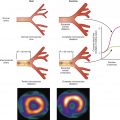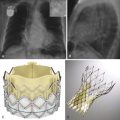
College students often find themselves juggling a lot: assignments, exams, part-time jobs, and social commitments. With demanding courses like math, it’s easy to let personal care slip through the cracks. However, neglecting rest, nutrition, and breaks can actually harm their productivity. Many students push through late nights, survive on caffeine, and skip meals, all in the name of getting ahead – but this approach can backfire.
When the workload piles up, it’s crucial to reassess how to manage everything. Sometimes, seeking help can be a smart choice – like when a student decides to use a service to do my math homework, giving them the chance to focus on other important tasks. Taking care of one’s health isn’t about avoiding work, but rather about ensuring long-term success. Sleep, good nutrition, and regular breaks aren’t just optional; they’re essential for staying focused and performing at your best throughout the semester.
The Power of Sleep: Your Brain’s Reset Button
We’ve all done it: stayed up all night studying for a huge test, living on coffee and willpower alone. But did you know that not getting enough sleep might make it harder for you to concentrate, remember things, and even make choices?
What Happens When You Don’t Sleep Enough?
Your brain is like a sponge. It takes in a lot of information during the day, like lectures, reading materials, and debates. But your brain works while you sleep at night. Like a librarian putting books on shelves, it sorts and stores what you’ve learnt. Your brain can’t accomplish this right if you don’t get enough sleep.
Not getting enough sleep affects:
- Memory consolidation – You might forget things you just studied.
- Concentration – It becomes harder to stay focused in lectures or while studying.
- Decision-making – You may struggle with even simple academic choices.
- Mood and motivation – Let’s be real, sleep-deprived you isn’t the most motivated version.
According to the National Sleep Foundation, adults need about 7–9 hours of sleep each night. Yet, surveys show many students barely get 5 or 6.
Sleep Better, Study Smarter
Putting sleep first doesn’t mean studying less; it means studying better. Students who get enough sleep learn faster, stay up longer, and do better on tests. Think of sleep as replenishing your battery. Would you use your laptop with only 5% battery power during an exam? Not? Don’t do that to your brain either.
Eat to Succeed: Nutrition as Fuel for Focus
When deadlines are coming up, it’s easy to want to grab snacks, energy drinks, or skip meals altogether. But the food you eat gives your body and brain energy. It’s as easy as that: rubbish in, garbage out.
Why What You Eat Affects How You Think
Food is more than simply fuel; it’s also information. The nutrients in your food can affect your mental health, energy levels, and even how well you think. For instance:
- Omega-3 fatty acids (found in fish, flaxseed, walnuts) support brain health and memory.
- Complex carbs (like whole grains and veggies) provide steady energy, avoiding that crash you get from sugary snacks.
- Proteins (chicken, beans, eggs) help with concentration and mental alertness.
- Water – Yes, even mild dehydration can impair attention and memory.
If you skip meals or eat junk food all the time, you may feel tired, irritable, and unable to concentrate, all of which are bad for your schoolwork.
The Student Meal Plan (No, Not Instant Ramen)
We’re not saying you need to become a gourmet chef overnight. But even small changes can have a big impact:
- Eat a real breakfast – Something with protein and fiber.
- Snack smart – Nuts, fruit, or yogurt beat candy bars every time.
- Stay hydrated – Keep a water bottle with you during lectures and study sessions.
- Limit caffeine – It’s okay in moderation, but too much can backfire and disturb your sleep.
Think of your meals as ways to study. You wouldn’t use a broken pen to write down notes, so don’t expect your brain to work well on a bad diet.
Breaks: The Secret Ingredient to Productivity
Do you ever feel like you’re staring at your laptop and reading the same words over and over? Your brain is alerting you that it needs a break. People often think that working all the time is the path to success, but it’s actually a formula for burnout.
Why Breaks Actually Help You Learn More
Our brains aren’t made to focus for long periods of time. After 45 to 60 minutes of serious labor, your brain starts to get tired. Taking small rests lets your brain:
- Process information
- Refresh mental energy
- Boost creativity
- Reduce stress
This is called the “spacing effect.” We remember better when we learn in small chunks with breaks instead of all at once.
Work Smarter: Try the Pomodoro Technique
One of the most effective methods to balance study and rest is the Pomodoro Technique:
- Study for 25 minutes
- Take a 5-minute break
- Repeat 4 times, then take a longer 15–30 minute break
Don’t spend all of your brief breaks scrolling around TikTok. Instead, get up, stretch, drink some water, or take a short walk. Give your brain a break.
The Mind-Body Connection: Why It All Works Together

So, what’s the main point? These strategies for sleep, eating, and taking breaks don’t only work on their own; they work together to keep your mind bright, your body motivated, and your schoolwork strong.
Your body fixes itself and your brain stores memories when you sleep soundly. Eating well gives your brain the nourishment it needs to think effectively. Taking breaks keeps you from becoming burned out and keeps your motivation high.
Are you going to miss one of these? You’ll start to see the effects: worse grades, always being tired, and not wanting to do anything. But when all three are in rhythm, you’re not just getting by in college; you’re doing well.
Final Thoughts: Give Yourself the Tools to Succeed
School life will always be busy. But giving up your health for your academics is a bad deal. The truth is that you can’t do your best work in school if your mind and body are tired.
So the next time you feel like staying up all night or skipping a meal to get more done, remember this: Rest, refuel, and recharge. Your brain is not a machine; it is more like a fast automobile. It needs the right upkeep to work well, just like a car.
Get adequate sleep, eat well, and take breaks. You’ll find that it’s much easier to stay focused, remember what you’ve learned, and enjoy your time in school.
Stay updated, free articles. Join our Telegram channel

Full access? Get Clinical Tree








